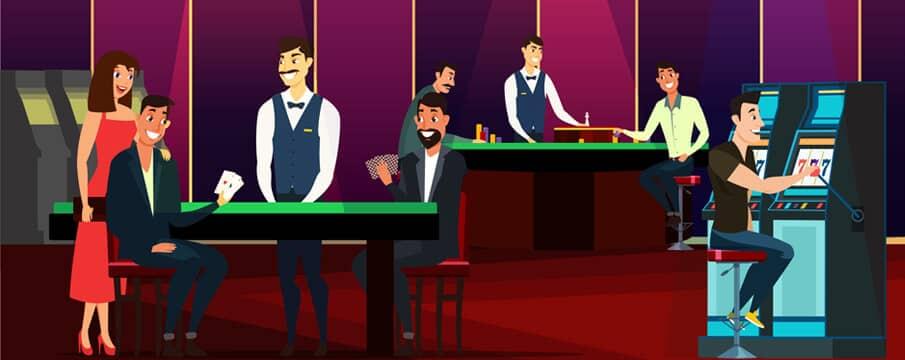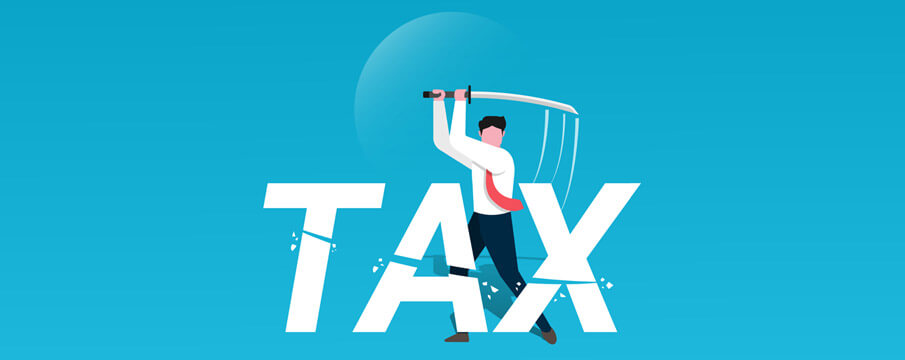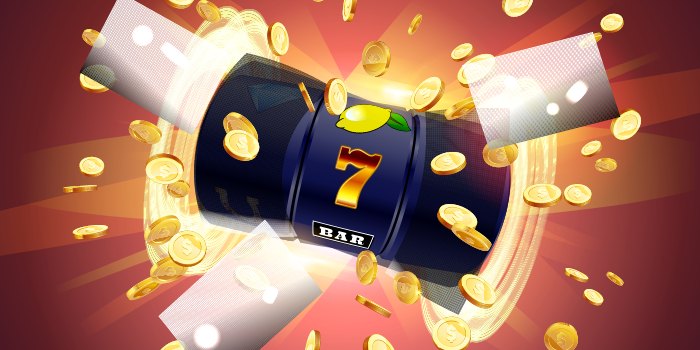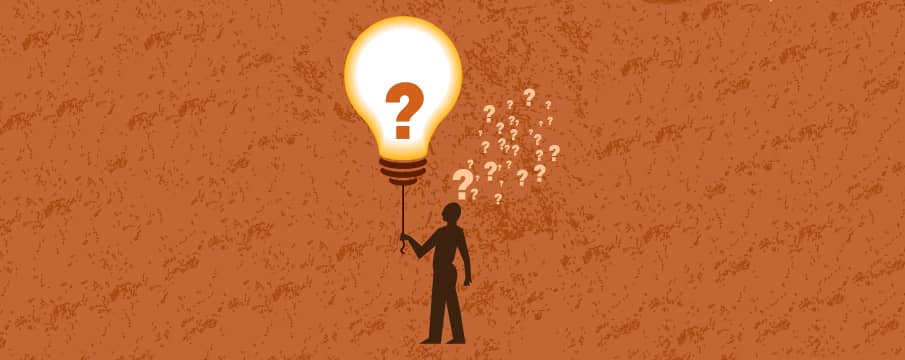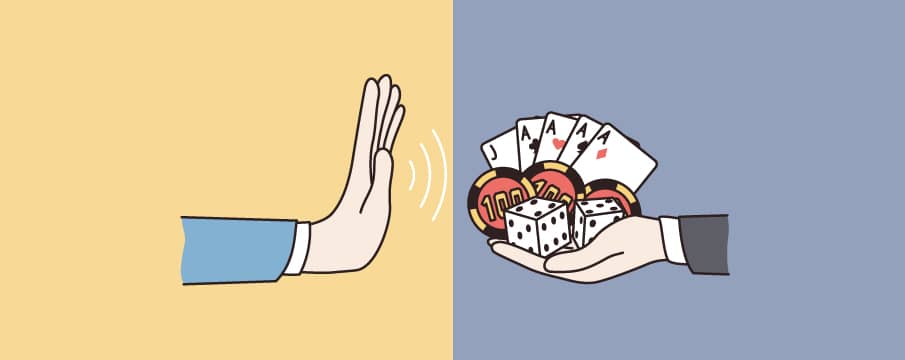- Home
- Macau: The Gambling Capital of the World
Macau: The Gambling Capital of the World
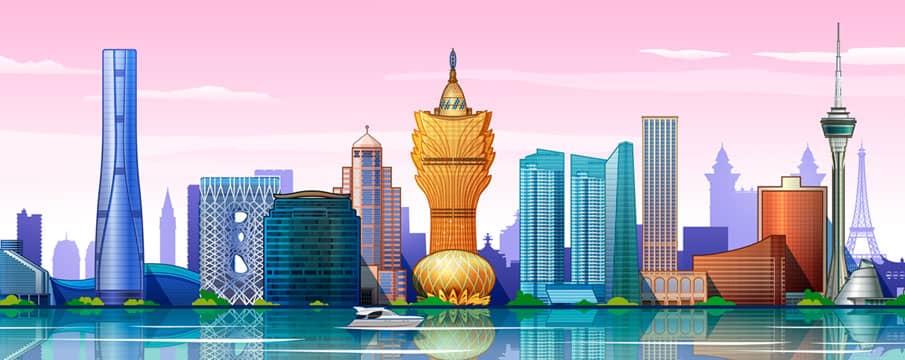
What comes to your mind when you hear the phrase “gambling capital of the world”? Well, it is not Las Vegas, even though Macau, the one and true holder of the title, was previously compared to the neon-lit city tucked away in the Nevada desert.
For a long while, though, Macau wasn’t called the capital of anything. In fact, to outsiders from the west, the city was often described as Asia’s Monte Carlo, one of the first European casinos, or simply the Las Vegas of the East, but that only happened in the 20th century.
None of these descriptions do the city justice today because Macau is the gambling capital of the world and there is little doubt about that. Property tycoons and media moguls are helicoptered in to splurge generous amounts of cash on a high-stakes game of baccarat and Hollywood often picks the city’s casinos to shoot sessions of popular movies.
Of course, Macau wasn’t always the gambling hub it is today. Its transformation began in the 1960s when one of the patrons of gambling, Stanley Ho, created the perfect environment in which casinos would develop and blossom into a multi-billion industry. But first, let’s note down a few key facts about Macau and its recent history.
How Did Macau Become the Gambling Capital of the World?
Back in 1840, when Macau was ruled by the Portuguese, the local administrators were looking for additional sources of revenue to add to the king’s coffers. They decided to tap into vice as a reliant way to secure additional money, and gambling houses were among the approved activities allowed under a new decree.
By the account of Camilo Pessanha, a Portuguese poet who lived in Macau at the time, the little backward settlement was quickly transformed into a “material and moral rubbish heap.” There was none of the glitz or kitsch of Macau today, and that would continue for a while.
Yet, even back in the 19th century, residents of Hong Kong and southern China already found the appeal too difficult to resist. Aliens were flocking across the border and right as rain, the Portuguese king’s coffers quickly started filling up.
“Macau was a material and moral rubbish heap.”
Actually, mores haven’t changed much since that time. Even today, Macau’s appeal remains rooted in its liberal gambling industry and the rich and powerful keep mistresses. Speaking of mistresses, the architect of modern-day Macau, Stanley Ho, had four wives and 17 children and left his empire to be fought-for between family members after he passed in May 2020 at the venerable age of 98.
Who Is Stanley Ho and How Did He Build Macau?
Turning a morally dubious city into the gambling capital of the world wasn’t an easy task at all. The first sensible change came in the 1920s when the first modern-day casinos began to form, although not entirely.
The true big change came in the 60s when Stanley Ho stepped in with his syndicate which obtained a gaming monopoly license and defeated the so-called Macau casino barons. Ho would establish the Sociedade de Turismo e Diversões de Macau (STDM).
With Ho at the reins, the industry would develop all on its own, even though by the time he passed, the grandfather of the gambling industry in the city owned around one-third of it. He did not go without a bang, though, being caught in internal strife with two of his children.
A Few Bloody Years and China Stepping In
While Stanley Ho set up Macau to become the gambling capital of the world, it wasn’t until China rolled out its sleeves and took the region under its wing as part of the “one country, two systems” formula, clamping down on gang violence that had spiraled out of control under Portugal’s lethargic rule.
As Portugal began withdrawing from the region and readied up to handing over the territory’s rule to China, and gambling concession was about to expire, powerful criminal groups began arm-wrestling for power.
“Macau was the first and last European colony in China.”
There were killings and bombs going off across the city and street fights flaring up between gang members. One triad leader, Broken Tooth, was particularly ruthless in enforcing his supremacy on rival gangs, and ordinary citizens who cowered as the violence unfolded.
China though had other plans. On the day Portugal officially handed the reins over in 1999, the country sent an unambiguous message marching the army in the center of town and warning that all gang violence would end at once. Macau was the first and last European colony in China.
Clamping down on violence and arresting Broken Tooth and his lieutenants led to another renaissance for the gambling industry in what would now rightfully be called the gambling capital of the world.
China’s Control Turns a New Page in the Region
While China may be strictly gung-ho against gambling and today the country prosecutes illegal gambling both at home and across its border, Macau was an opportunity to try a different model. China was aware that a lot of black-market gambling was going on at home and the country decided to channel the pent-up demand in Macau.
China vowed to transform Macau into what we agree on calling the gambling capital of the world today by liberalizing the market and opening up the sluice gates of foreign investment.
One after another big brands from across the Pacific Ocean began trickling in, bringing their expertise in running and building casinos, but also drawing inspiration from the local culture. The brands to set up shop included:
- Wynn
- MGM
- Las Vegas Sands
- Caesars Entertainment
Tourists from across the border with China also started trickling in at a quick pace. In 2019 alone, Macau welcomed 39,406,181 visitors according to the Statistics and Census Service (DSEC). That was a significant increase from 2001 which only recorded less than a million visitors.
China’s own rise to economic preeminence has produced many well-heeled Chinese who could afford to travel and indulge in expensive leisure such as gambling. The brands began to create replicas of European and American cities in a bid to excite interest in the East and they have been right to do so.
The Venetian Macau is still the largest casino in the world to date, second only to WinStar World Casino in Oklahoma, the United States. The venue sprawls on 546,000 square feet with 3,400 slot machines and 800 gambling tables available.
What Does the Macau Gambling Experience Involve?
As the gambling capital of the world, Macau offers the type of experience that is definitely better than what most other gaming hubs can muster. Entertainment is intertwined with the very fabric of Macau’s casinos and you will often find yourself visiting rich, swanky, cavernous, and brightly-lit royal venues with fountains embedded in the middle and chandeliers treacherously hanging overhead with the weight of thousands of little lights.
Fireballs erupt from model volcanoes, sending incandescent spurts of color into the air. Yet, these are just touches of what the actual gambling experience is all about. Macau has over 41 casinos covered with slots and table games as well as private VIP rooms tucked away from the commotion of the casino floor and reserved for the most well-connected gamblers the city welcomes.
The Venetian Macau clearly has its pull with 3,000 available rooms to host the city’s guests and one of the most expansive gaming floors. The casino boasts the famous indoors Cotai Arena which has spawned all sorts of entertainment spectacles through the years it has been in operation.
The Chinese New Year is a particularly propitious time for gamblers who flock from across the borders between Hong Kong and China to have a crack at the baccarat tables, blackjack, and craps, which constitute the most entertaining forms of gambling that most Asian gamblers choose to play. While you can say that Western gambling pivots around the penny-pinching slot experience, Macau is all about the real money games.
Players are welcome at any of the available casinos in the city, including the City of Dreams, Altira, Sands Macao, Galaxy Casino, Wynn, Starworld, MGM Grand, or Rio Hotel and Casino. Asian players mean business because to them it’s not leisure. It’s a matter of financial opportunity, a sentiment profusely expressed in some of the best animes about gambling.
Macau: A Capital of the VIP Gambling World
Yet, the biggest chunk of Macau’s revenue doesn’t necessarily come from the rank-and-file, intermittent visitors who stop by the city for a casual flutter. Nearly three-quarters of Macau’s gaming revenue comes from the VIP players and high-rollers that flock to bet hundreds of thousands of dollars.
We are talking about thousands of players from all over the world who come with a single purpose in mind to drop eye-popping amounts of money without ever batting an eyelash. While the regular casino floor could be filled with the rustling of cards and sudden thuds released in anger, the private VIP lounges are sophisticated the players stake $100,000 per hand of baccarat, for example.
To put things in perspective, high-rollers amount to just 1% of everyone who visits Macau’s casinos. Yet, they generate roughly $26 billion a year for gaming venues, extrapolating from the total revenue Macau’s casinos grab each year.
You don’t have to be a tycoon to get a taste of the high rolling experience in Macau either, as there is plenty of rich demographic who are quite happy to bet between $250 and $400 per hand of baccarat, brokerage firm Bernstein reported in 2019.
However, this trend is actually declining and the 2020 crisis may have quickened the pace. According to Bernstein, by 2022 VIP revenue will fall to just 34% of the total gaming and non-gaming revenue generated in casinos, Bernstein reported. Either way, Macau will remain the gambling capital of the world insofar as the VIP experience is concerned. At least for a good while longer.
How Many Casinos Are There in Macau Right Now?
There are 41 casinos in Macau. They are not located in one and the same place but are rather spread out with 24 in the Macau Peninsula and the other 17 located on Taipa Island, also known as the Cotai Strip. For your convenience, we have put a list together of the more noteworthy properties.
| Name | Size | Games |
| Altira Macau | – | 550 slots, 220 table games |
| Casa Real Casino | 36,000 sq ft | 123 slots, 53 table games |
| Casino Lisboa | 190,000 sq ft | 107 slots, 146 table games |
| Casino Macau Palace | 11,120 sq ft | 51 slots, 12 table games |
| Grandview Casino | – | 51 table games |
| Jai Alai Casino | 67,075 sq ft | 208 slots, 61 table games, 4 VIP rooms |
| Kam Pek Casino | 34, 320 sq ft | 71 slots, 24 table games, 4 VIP rooms |
| Kingsway Hotel Casino | 11,755 sq ft | 20 slots and 8 table games |
| Grand Lapa Macau | 12,140 sq ft | 59 slots and 11 table games |
| Mocha Clubs | – | 1000 slots |
| New Century Hotel & Casino | – | 19 table games |
| The Legend Club | 15,000 sq ft | 108 slots, 12 table games, 1 VIP room |
| Sands Macao | 165,000 sq ft | 405 slots, 270 table games |
| Golden Dragon Casino | – | 137 slots, 123 gaming machines, 85 table games, 15 VIP rooms |
| Greek Mythology Casino | 160,000 sq ft | 228 tables, 100 slot machines |
| MGM Macau | – | 1035 slots, 345 table games |
| Wynn Macau | 246,000 sq ft | 375 slots, 212 table games |
| The Venetian Macao | 550,000 sq ft | 3,400 slots, 800 table games |
| Casino Crystal Palace at Hotel Lisboa | 14,100 sq ft | 36 tables games |
| Diamond Casino at Holiday Inn | 6,900 sq ft | 6 + 1 VIP room, 32 slot machines |
| Emperor Palace Casino | – | 365 slots, 64 table games, 8 VIP Halls |
| Fortuna Casino | – | 35 gaming tables |
| Galaxy Rio Casino | – | 150 slots, 80 table games, 4 VIP rooms |
| Galaxy Starworld | – | 371 slots, 300 tables |
| Galaxy Waldo Hotel and Casino | – | 100 slots, 63 table games, 8 VIP rooms |
| Pharaoh’s Palace Casino | 9,000 sq ft | 383 slots, 109 tables, 5 VIP |
| Ponte 16 | – | 20 gaming rooms, 150 table games, 5 VIP halls |
| Casino Marina at Taipa | 45,900 sq ft | 37 slots, 20 table games, 4 VIP rooms |
| Crown Casino, Taipa | 183,000 sq ft | 500 slots, 220 table games (80 VIP tables) |
| MJC Casino, Taipa | 15,800 sq ft | 19 tables, 2 VIP rooms |
| City of Dreams | 420,000 sq ft | 1500 slots, 550 gaming tables |
| Galaxy Cotai Mega Resort, Cotai | – | 1,000 slots, 450 tables |
| Galaxy Grand Waldo, Cotai | 120,000 sq ft | 350 slots,168 table games |
| Casino Oceanus | 344,445 sq ft | 569 slots, 269 table games |
Other Forms of Entertainment in Macau
Macau is without a doubt the gambling capital of the world, yet there are many forms of entertainment beyond the casinos that you can enjoy. In fact, in 2020, DSSOPT director Chan Pou Ha said that Macau is yet to realize its full potential, looking beyond casino gambling and boosting tourism instead. The city has a lot to offer, from must-see sights to spectacular live shows that will make your trip to the region doubly worthwhile. The Experience and Destiny take place at the MGM Theater and it features two spectacles that bring mind-bending visuals to life to re-create an outstanding experience across the board.
The Experience is inspired by local culture whereas Destiny takes on a slightly more technological turn and uses the gargantuan LED wall to capture and reflect the audience’s reflection on what can be justly described as a step closer to a mass augmented reality.
If you want to see a performance demonstrating the boundlessness of human endeavor, The House of Dancing Water, directed by former Cirque du Soleil’s Franco Dragone, is definitely what you would want to see.
This 85-minute action-packed show combines acrobatics and aerial arts, theater, and admittedly, breath-taking stunts. The giant swimming pool holds some 3.7 million gallons of water and it easily converts into a solid floor in less than a minute. Some 90 international artists take place in the performance, making it one of the most ambitious live entertainments in Macau.
You will actually be able to attend a Broadway Spectacle in Macau, as the city is all about high-tier entertainment and having guest performers from across the Pacific Ocean is always welcome.
If you want to sponge up some of that Eastern culture, do not miss the Monkey King extravaganza, a performance that tracks the Chinese exploration of the west with a lot of acrobatics, song, and a spectacular plot.
The Underbelly of Corrupt Officials Misusing Public Funds
While the gambling capital of the world has moved past its sketchy past, there are a few examples of power abuse. Other than the triads who have gentrified and are feuding away from the public eye, there have been scandals over Chinese officials taking a trip to Macau to spend embezzled funds on gambling.
The practice took rather big proportions in the 2000s when officials would nip down South to launder kickbacks and come back all the richer for it. Yet, with the coming to power of Xi Chinese President Jinping in 2012, corruption in China has been swept prompting the disappearance and imprisonment of hundreds of officials suspected of using gambling as a way to launder illicit proceeds.
In fact, there have been far fewer visits to Macau by party functionaries following Xi’s ascent to power and the sweeping move designed to clamp down on corruption. Commercials have been largely unscathed, though, as they have been operating on the straight and narrow and contributing a sizeable 37% tax to the administrative region’s coffers.
Don’t Miss These Curious Facts about Macau
Over the years, there have been a few cool anecdotes about Macau and many interesting facts you would love to add to your daily factoids list. Here are ten cool knowledge tidbits to share with your friends on your next trip to the city.
#1 Macau’s name is a misunderstanding
When Portuguese settlers first arrived, they were naturally curious to find out what the locals called the place they had set foot on. “A-Ma-Gau” A bit hard of hearing, the Portuguese were happy to call this new land Macau, although, in reality, the natives were referring to the name of the local temple.
#2 First and last European colony in China
Macau was settled by the Portuguese, mighty seafarers of their time, and all the way back in 1557, but the territory didn’t transfer to Portugal’s rule until 1887. The country passed the reins over to China in 1999, but you can see the curious blend of Eastern and Western architecture. Besides, Portuguese is still one of the official languages.
#3 Macau is the richest gambling region
A credit to its title, Macau is the richest gambling region in the world. The casinos churn out bigger bucks than other gambling hubs, such as Las Vegas. In fact, Macau surpasses Lass Vegas three-fold in pure revenue.
#4 The local government pays citizens
It feels to live in Macau, whether you are a temporary or a permanent resident. Western societies are only now starting to stretch their legs and work around the idea of a basic income, but in Macau, the government pays you a bonus of $1,200 a year as a permanent resident. If you are only temporarily settled, you can expect around $670.
#5 World’s first fusion cuisine dating 400 years back
With the first Portugal settlers who made it to the city back in the 16th century, the seafarers also brought their own cuisine. The Portuguese palette seemed to take to Chinese food and thus the first fusion cuisine was created, combining foods from both regions and relying on imports from home to create a completely different food experience.
A Final Word about Macau’s Gambling Paradise
Macau has plenty to offer to tourists and gambler enthusiasts in equal measure. The city hosts some of the world’s best casinos and it spices up the available entertainment with VIP lounges for the biggest gamblers out there, but also creates unique live spectacles and overall experiences that involve the local culture and cuisine. All in all, Macau is definitely the gambling capital of the world, but gambling is not the only reason why you should visit. Macau is a blend of varied and entertaining experiences you will enjoy.
Mike made his mark on the industry at a young age as a consultant to companies that would grow to become regulators. Now he dedicates his weekdays to his new project a the lead editor of GamblingNews.com, aiming to educate the masses on the latest developments in the gambling circuit.




